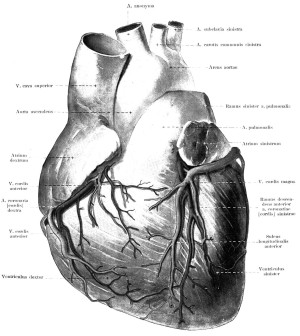- Could Your Grocery Store Meat Be Causing Recurring UTIs?
- Are You Making This Expensive Thermostat Error This Winter?
- Recognizing the Signs of Hypothyroidism
- 10 Strategies to Overcome Insomnia
- Could Artificial Sweeteners Be Aging the Brain Faster?
- Techniques for Soothing Your Nervous System
- Does the Water in Your House Smell Funny? Here’s Why
- Can a Daily Dose of Apple Cider Vinegar Actually Aid Weight Loss?
- 6 Health Beverages That Can Actually Spike Your Blood Sugar
- Treatment Options for Social Anxiety Disorder
Bleeding Strokes Take Heavy Toll on Brain

Survivors of the most deadly type of stroke face a higher risk for developing depression and dementia, new research suggests.
Often called “bleeding strokes,” hemorrhagic strokes occur when a blood vessel ruptures and leaks blood into the brain. Conversely, the more common ischemic stroke happens after a blood vessel is blocked in the brain.
“Our study changes the way we look at depression after a hemorrhagic stroke,” said study author Dr. Alessandro Biffi, a neurologist at Massachusetts General Hospital in Boston.
“Depression is not just an isolated phenomenon following a hemorrhagic stroke,” said Biffi, who is also director of the hospital’s Aging and Brain Health Research Group.
“It may identify those who are likely to develop dementia, and this is important when these patients are evaluated, particularly in outpatient care settings,” he said.
Biffi and his colleagues plan to present the findings Wednesday at the International Stroke Conference in Houston. Research presented at meetings is considered preliminary until published in a peer-reviewed journal.
For the study, the scientists tracked nearly 700 bleeding stroke patients for five years.
None had any history of depression in the five years leading up to their stroke. Half were women, three-quarters were white, and the majority had at least one type of risk factor for heart disease, such as high blood pressure and/or diabetes.
Surveys were conducted every six months after their stroke to assess mood, anxiety and overall mental well-being.
The result: Forty percent developed depression within four years of their stroke. The researchers said that rate is notably higher than found in the general public.
What’s more, those who did develop depression were also found to face a higher risk for developing dementia. In more than six in 10 cases, patients were ultimately found to suffer from both, with depression preceding dementia 80 percent of the time.
“When caring for hemorrhagic stroke patients, health care providers tend to focus on preventing another stroke,” Biffi said in an American Stroke Association news release.
“[But] we have found that even among patients who do not have a second stroke, the incidence of depression and subsequently dementia are very high, and health care providers need to be on the lookout for it in order to counsel patients and families,” he added.
More information
There’s more on bleeding strokes at the American Heart Association.
Source: HealthDay
Copyright © 2026 HealthDay. All rights reserved.










